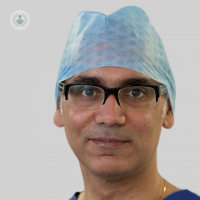Why and when is a vasectomy performed?
Written by:A vasectomy is a procedure that is performed on men who wish to prevent sperm ejaculation, and may be the perfect surgical procedure to undergo for men who do not wish to have any more children.
In our latest article, trusted and extremely well-regarded London-based consultant urologist, Mr Sarb Sandhu, details why and when a vasectomy may be performed, and reveals the potential side effects associated with a vasectomy.

What is a vasectomy?
A vasectomy is when you remove or obstruct the progress of the sperm from the testicles. A vasectomy prevents the sperm from being ejaculated.
Why and when is it necessary?
It is simply a lifestyle choice, and either a couple, or a man himself, can decide that they do not wish to have any more children. If this is the case, they would then have a vasectomy, which will stop them from releasing sperm during sexual intercourse.
Who is the ideal candidate?
Ideally, the ideal candidate for a vasectomy will have a partner who is still fertile.
Are there any risks or potential complications involved?
The main risks are bleeding, pain, and infection. In almost three per cent of men, the pain could be chronic. Up to two and a half per cent of men will continue to produce dead sperm for up to three years, and the same percentage of men may develop a cyst.
How should patients prepare for a vasectomy?
I always advise my patients to have paracetamol on them for afterwards and at home. I also advise them to bring and to wear speedos immediately after their vasectomy.
Is there any recovery time involved?
Some patients recover fully within 48 to 72 hours, while others require longer. Some patients can suffer from an infection. It is vital that patients take time off and rest in the immediate days after the operation.
It is important to stress that patients cannot use a vasectomy as a form of contraception, until the patient has done a semen analysis, which will usually be 14 weeks after the operation, which will show and confirm that no sperm is being ejaculated.
Mr Sarb Sandhu is a mightily experienced and skilled consultant urologist who is an expert in performing vasectomies. Visit his Top Doctors profile today to book an appointment with him.


